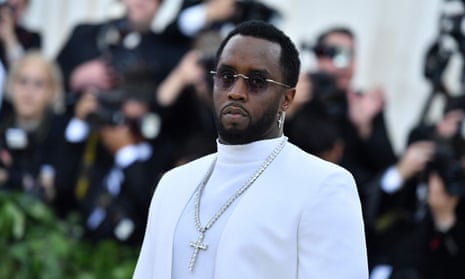The highly publicized case involving Cassandra Ventura, also known as Cassie, and hip-hop mogul Sean Combs, popularly known as Diddy, has reached a settlement.
Cassie filed a lawsuit against Diddy, accusing him of coercive control, abuse, drugging, and s**ual violence throughout their 13-year relationship.
The lawsuit sheds light on the power dynamics at play in society.
According to the complaint, Diddy allegedly provided Cassie with drugs such as ecstasy and ketamine.
He also physically abused her, including an incident in Los Angeles in 2009 when he saw her talking to another business agent.
Cassie claims that Diddy beat her, causing her to take a week to recover.
The complaint further alleges that Diddy repeatedly raped her, even hiring male s** workers to gang-rape her while filming the act.
In 2018, after Cassie tried to leave the relationship, Diddy broke into her house and assaulted her.
He controlled every aspect of her life, including her career, medical information, and contact with her family.
Additionally, Diddy threatened to destroy a man's car who Cassie was romantically linked to, which resulted in a vehicle explosion.
Cassie filed her lawsuit under New York's Adult Survivors Act, which allows victims of gender violence to sue their attackers in civil court, even if the statute of limitations has passed.
However, this law is set to expire on November 23.
Diddy, known for adopting various monikers throughout his career, denies all allegations made against him.
After the swift settlement, both parties claimed to have resolved the issue amicably.
It is likely that Diddy paid a substantial amount to Cassie to drop the lawsuit.
While this may be the best outcome for Cassie, as she was able to share her story publicly without enduring the legal process, it raises questions about justice and accountability.
Cassie's lawsuit comes shortly after actress Keke Palmer filed for a restraining order against her former partner, Darius Jackson, alleging domestic abuse.
Palmer presented evidence, including screenshots from home security footage showing Jackson physically assaulting her.
This request follows rapper Megan Thee Stallion's release of the single “Cobra,” which delves into her experience of being shot by her former partner Tory Lanez and the subsequent public backlash she faced during his criminal trial.
These cases highlight a quiet revolution happening in Hollywood, where high-profile women, particularly Black women, are speaking out about their experiences with domestic abuse.
Their stories have sparked important conversations within their communities, primarily online communities of Black women.
However, these conversations have yet to reach mainstream feminism due to audience siloing and disinterest from white feminists.
It is crucial for feminism to address the horror and prevalence of domestic abuse and continue the momentum started by the #MeToo movement.
Domestic violence remains pervasive but often misunderstood.
Approximately one in four women will experience intimate partner violence in their lifetime, similar to the number of women who experience rape or attempted rape.
Yet, victims face skepticism, victim-blaming, and the expectation to keep abuse private.
When victims report the abuse, they are often accused of airing dirty laundry or even labeled as abusers themselves.
The Amber Heard and Johnny Depp defamation lawsuit exemplified the public misunderstanding surrounding abuse.
Heard sought a restraining order against Depp and alluded to his alleged abuse in an op-ed.
However, the trial devolved into a spectacle of misogyny, fueled by media sensationalism.
Heard lost the suit, faced public scrutiny, and now forever carries the association with her alleged abuser.
Despite the challenges, women like Cassie, Palmer, and Megan Thee Stallion continue to come forward, demonstrating their desperation and bravery.
With hindsight, it is clear that the #MeToo movement had limitations.
While workplace harassment was deemed acceptable to discuss, private behavior within relationships remained largely untouched.
The discourse drew a line, suggesting that women could complain about public behavior, but private behavior was something they were expected to endure.
This is reflective of the long-standing rules of male violence, where men maintain unquestioned control within the home and relationships.
Confronting domestic violence challenges these norms and demands that women be treated as whole and worthy individuals, both in public and private spheres.
It is essential for more women to find the courage to demand this change.































